Big Mood’s Luke Fetherston says there are still ‘shocking’ debates about gay actors being a ‘palatable amount of gay’
Exclusive: "We're all trying to guess how the networks want gay to be portrayed. I don't think that is a reality for straight actors," the actor has told Attitude

Big Mood has been a big step for actor Luke Fetherston. “It was the most freeing experience,” he shares with Attitude over a drink at Shoreditch’s The Hoxton Hotel one April afternoon. “What was so amazing is we had so much freedom,” he says of the filming process. The series sees the Still Up actor star opposite Bridgerton’s Nicola Coughlan and It’s A Sin’s Lydia West in the comedy-drama about a young woman with bipolar disorder.
Luke continues: “Rebecca [Asher, director] was so warm and loving, and Camilla [Whitehill, writer], it’s her baby and she knows the show inside out. If ever there was something we weren’t sure of, one tiny little note and we’d understand exactly what she wanted.”
The cast bonded quickly and despite filming over a year ago the group chat is reportedly still “popping off.” The chemistry was established with the first scene Luke filmed – the sham dinner party scene from the third episode. “That was a real bonding experience,” Luke remembers fondly. The warmth and energy came from the top with the creators as well as the show’s leads. “Everyone was so open. They set the tone so well and we were all on board.” Luke waxes lyrical about the show’s caring environment before stopping with “It sounds quite wanky, but it really was.”
“When I read Ryan, I was like, ‘I know who he is, and I want to have fun'”
One of the enjoyable things about Big Mood is that it feels entirely relatable, utterly relevant, and calmly progressive. It doesn’t feel it’s making active strides to be any of those things. One example of this is ‘Trans Lives Matter’ being inscribed on a bathroom wall in one scene. It’s a small detail that’s easy to miss. However, it makes a quiet statement about the creators’ intentions and the show’s ethos.
Another example is Luke’s character, Ryan, who is gay. Chatting about the character my friend remarked: “I hadn’t registered [Ryan] was gay,” which is a good thing. It’s 2024, we’re past the point where LGBTQ+ characters have to declare their sexuality or gender identity. Gone are the days when gay characters are nothing more than camp stereotypes. Gone are the days when gay characters don’t have to be restricted to traumatic coming out stories. And gone are the days when gay characters are only the butt of a joke. Ryan is a fully realised 21st Century gay man who looks and sounds like everyone else. Yes, he might go to a kid’s birthday party and worry how many of the dads he’s sucked off, but he’s a normal human.
“When I read Ryan, I was like, ‘I know who he is, and I want to have fun.’ Sometimes there’s a risk with playing flamboyant or ‘camp’ roles. But I am not here for that anymore. He’s a party boy, he’s the fun one. He doesn’t give a f***. I just loved it so much,” says Luke. The role offered him a chance to let go in a way he hadn’t before. “I was so happy to bring that to life because sometimes I do have insecurities about what people might think of a gay actor playing a camp role and getting ‘pigeonholed’. But I think we’re past that now,” he opines.
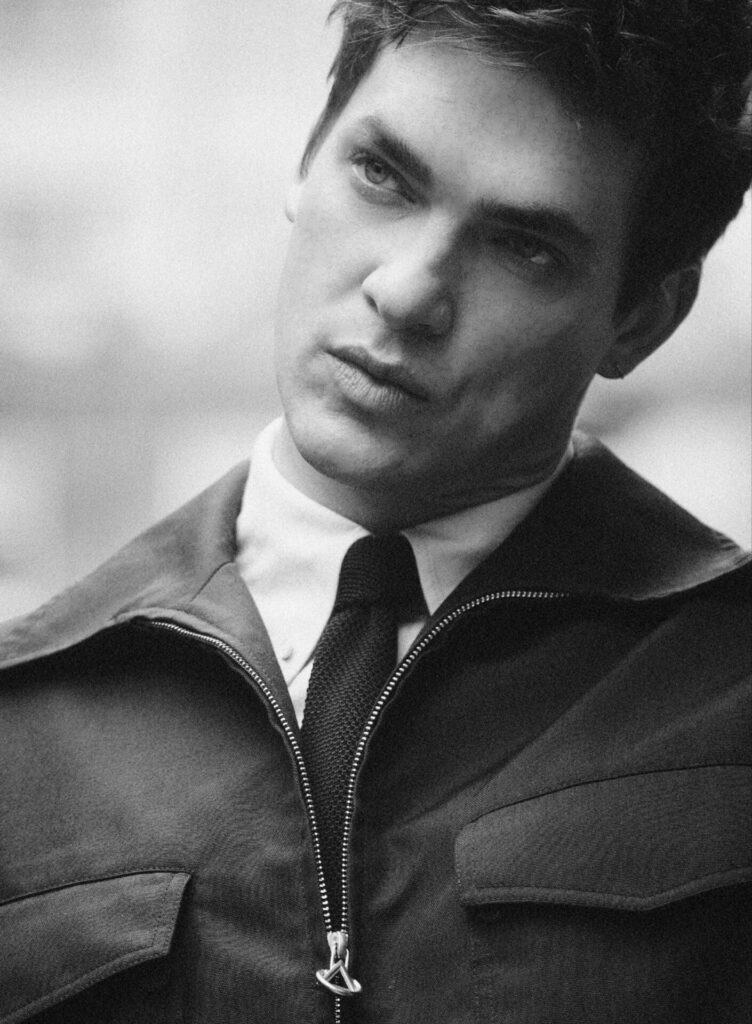
(Image: Neil Gavin, Grooming: Sven Bayerback at Carol Hayes Management, Clothing, Marchon Eyewear, Moscot, and Solid Homme)
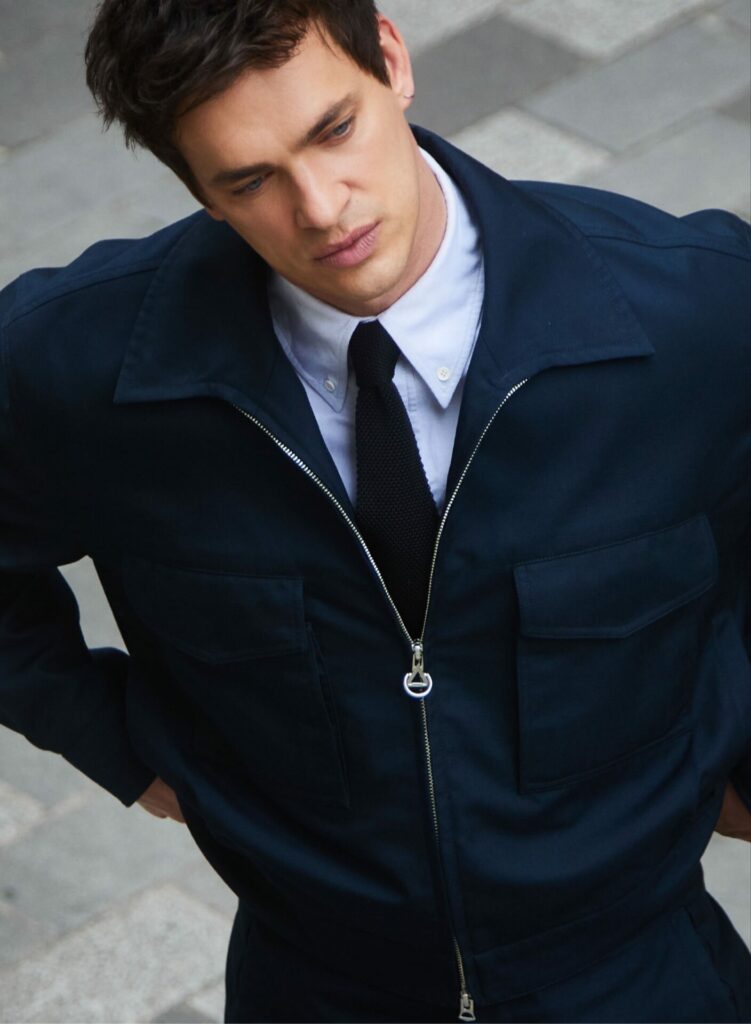
(Image: Neil Gavin, Grooming: Sven Bayerback at Carol Hayes Management, Clothing, Marchon Eyewear, Moscot, and Solid Homme)
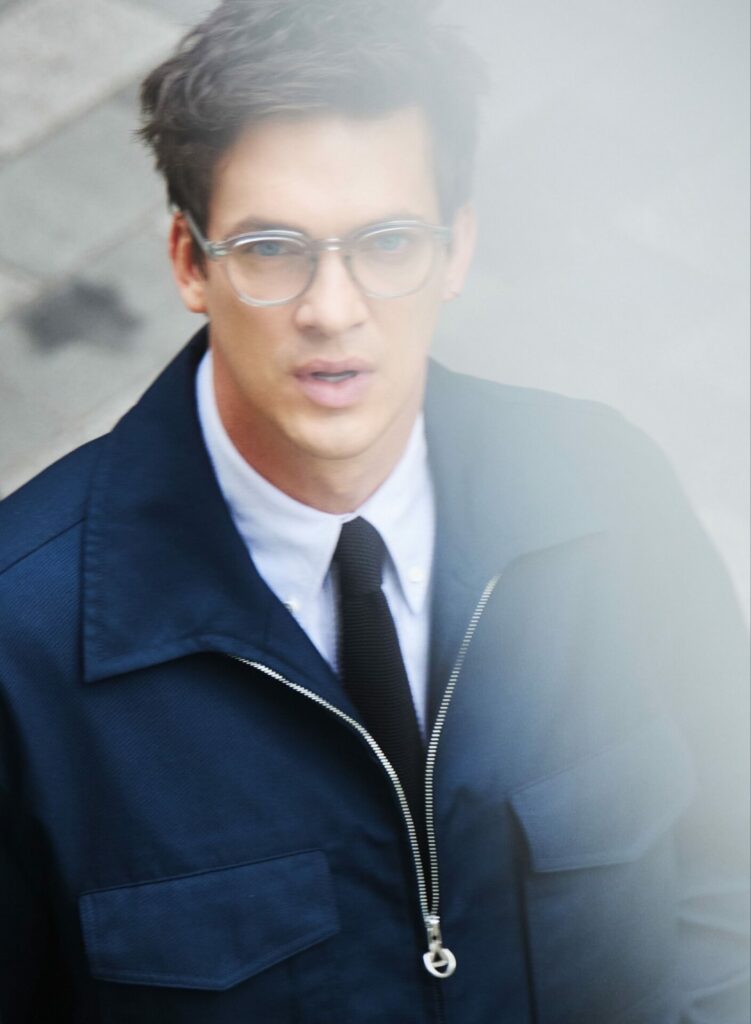
(Image: Neil Gavin, Grooming: Sven Bayerback at Carol Hayes Management, Clothing, Marchon Eyewear, Moscot, and Solid Homme)
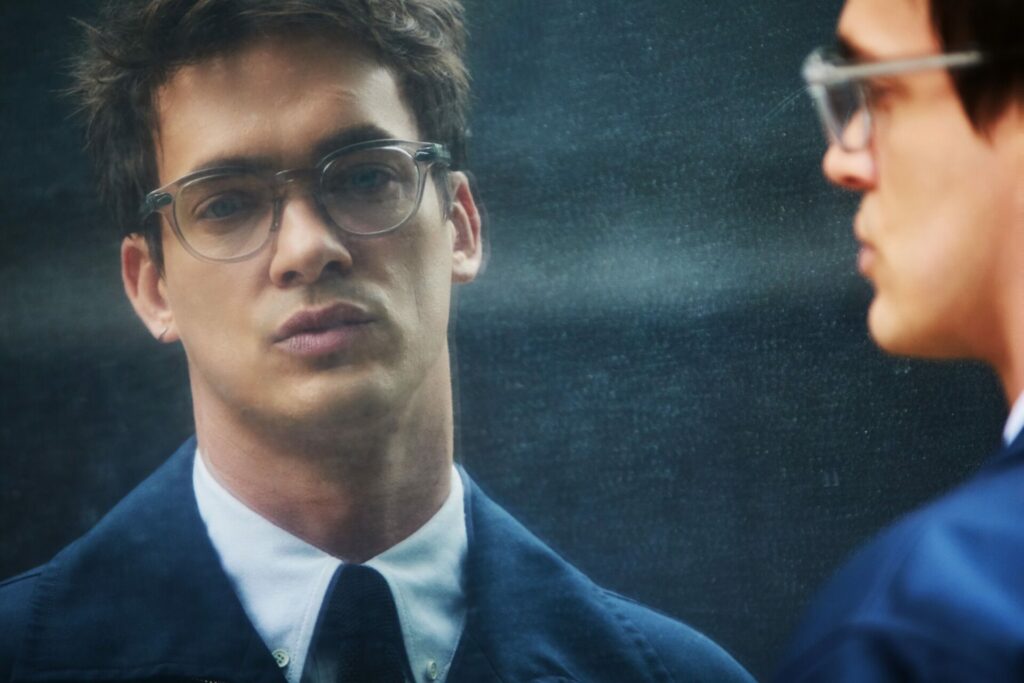
(Image: Neil Gavin, Grooming: Sven Bayerback at Carol Hayes Management, Clothing, Marchon Eyewear, Moscot, and Solid Homme)
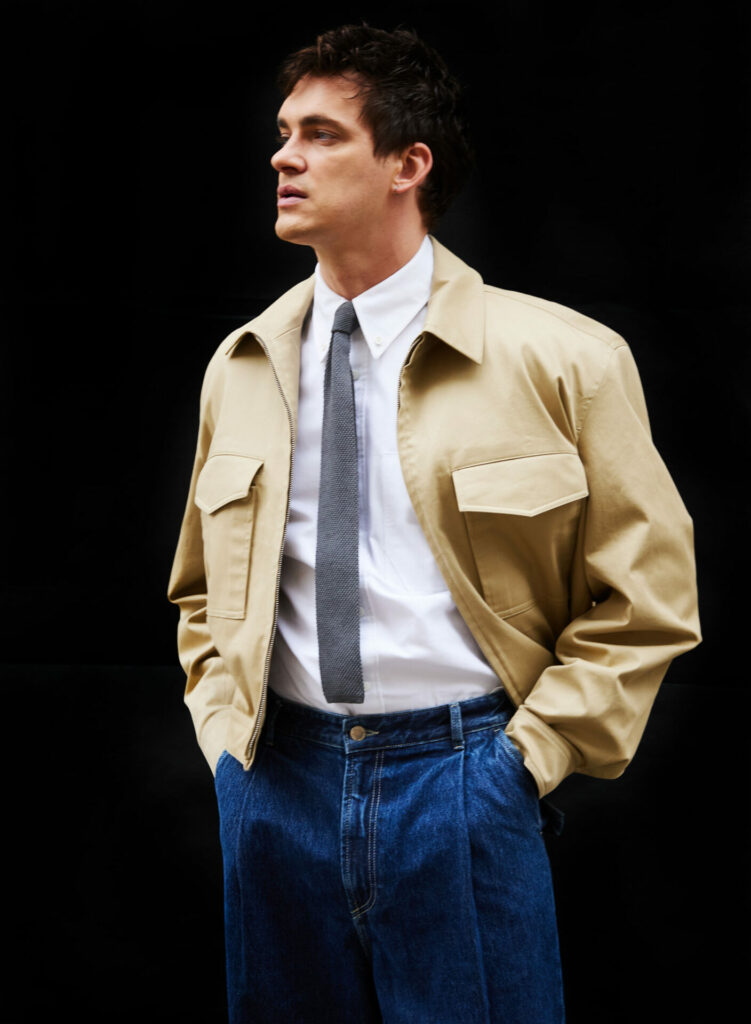
(Image: Neil Gavin, Grooming: Sven Bayerback at Carol Hayes Management, Clothing, Marchon Eyewear, Moscot, and Solid Homme)
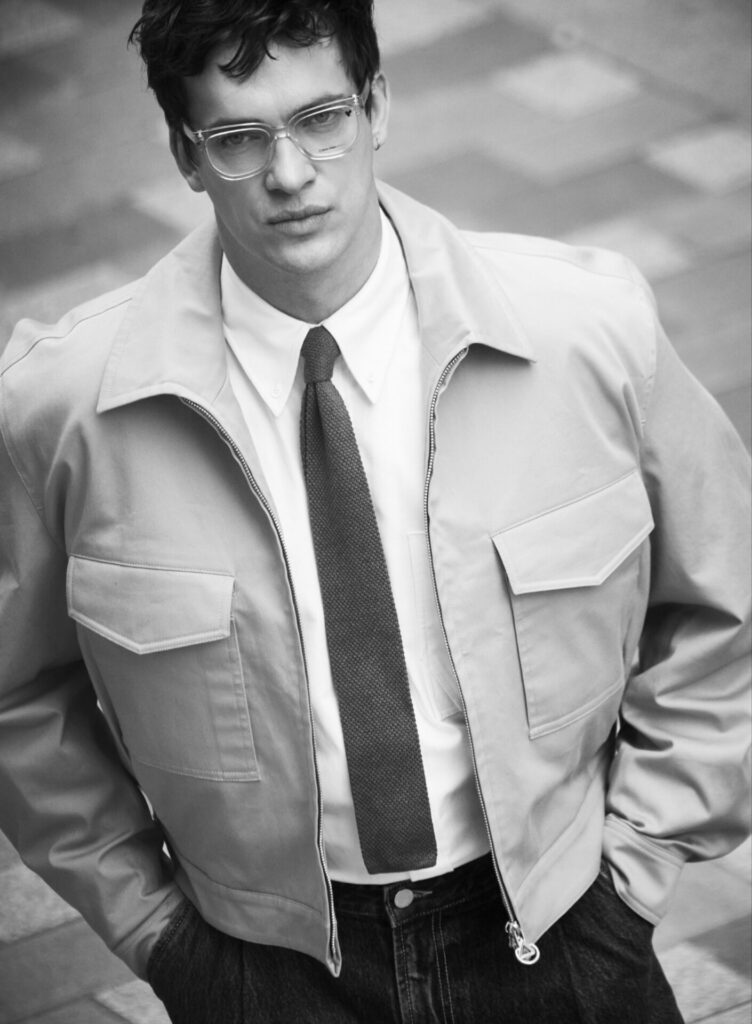
(Image: Neil Gavin, Grooming: Sven Bayerback at Carol Hayes Management, Clothing, Marchon Eyewear, Moscot, and Solid Homme)
“I wanted to be completely authentic and tap into that part of me, which I sometimes hide because I have to especially when auditioning. And sometimes I have in life as well dimmed that part of me. It was freeing to go full steam ahead into that.” Touching again on the freedom afforded to the cast by the show’s creators, Luke says there was “no fear” on set and that he felt fully able to raise questions or make the character more authentic in what was said and how it was said if need be. “They were so encouraging and the more I played, the more they kept saying ‘More and more’.
Luke’s comment about knowing Ryan as a gay man himself raises an interesting question related to the debate about who should play queer roles. Is there more leniency towards someone like Luke playing those roles and leaning into ‘camp’ territory than there would be if a straight man did? James Corden in The Prom springs to mind. While that and Luke’s portrayal of Ryan are far removed from one another it’s an interesting, I feel, point which I raise with Luke. “I hope that people see that I understand that truth. I’ve been through it, I’ve experienced it. I don’t think Ryan is particularly camp but when I was exploring ways that I could play him it felt very natural. And I think that’s partly due to the fact that when I read Ryan, it was just so clear who he was.”
“Gay actors aren’t allowed to be gay or straight”
The last time Luke spoke to Attitude we discussed who should play queer roles. He told us then, “I wouldn’t like to say that I think every gay role should be played by a gay person,” but also, “I feel like until everyone is in the same boat, then I think it’s good to encourage gay people to play gay roles and to talk about it.” It was a thoughtful take that placed an emphasis on addressing a long-running imbalance in the entertainment industry. Two years on he hasn’t changed his mind but reiterates casting queer actors in queer roles “seems to be the better option.” He finds casting announcements where straight actors are to play queer roles “boring.” Pressed on this he adds, “I find it reductive, and I really don’t find it interesting.”
But there are instances where straight men have played gay roles successfully, the key has been a sensitive handling of the matter as well as queer involvement often behind the camera. One example Luke lists is Paul Mescal in Andrew Haigh’s haunting masterpiece All of Us Strangers. While recognising that even in the last two years things have improved, Luke justifiably bemoans a world where “Straight actors get to be gay and straight because it’s more attractive for a straight man to play a gay role,” but where “gay actors aren’t allowed to be gay or straight.”
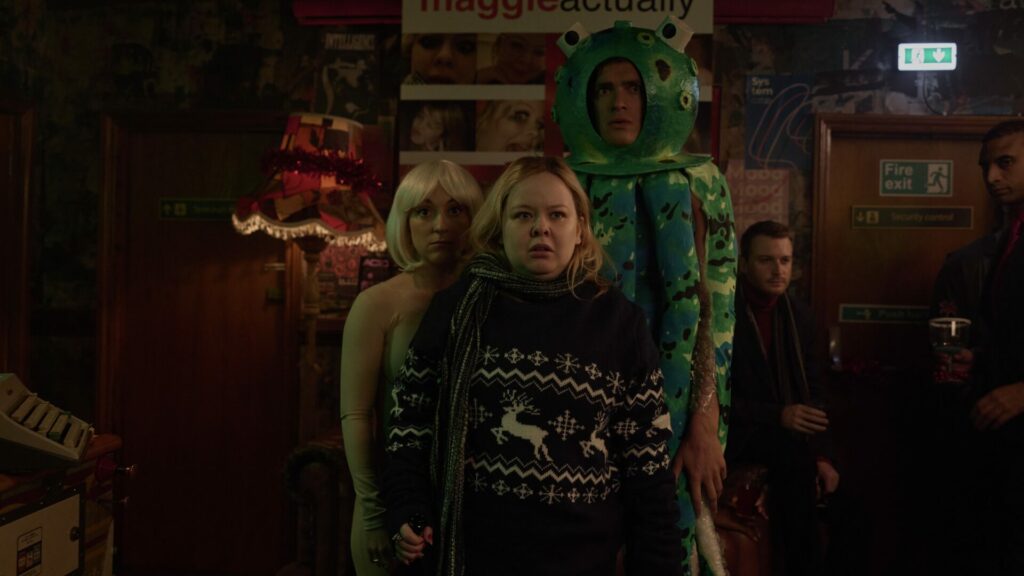
Candidly, Luke shares a recent experience. “Even in a project I have coming up where I’m playing a gay role, the debates that went on before I got offered the job about how gay they wanted this role to be was shocking. I couldn’t believe it.” Elaborating Luke reveals he wasn’t involved in the conversations himself, but he knew they were happening. “The project was amazing, but those conversations were a reality. It’s like they’re looking for this palatable amount of gay. That’s what it felt like to me.
“Are these conversations happening when straight actors are accepting straight roles? How straight do we want this person to be? No. That to me is just an issue I don’t understand. They should let an actor read the script, do the audition, and if it’s not working, then that’s fine.” It’s not a double standard Luke has come up against much himself but wouldn’t be surprised if other gay actors have. “When I speak to my gay friends there is a concern. We’re all trying to guess how the networks want gay to be portrayed. I don’t think that is a reality for straight actors.”
“I’m more confident in who I am and what I can do”
To his knowledge Luke hasn’t missed out on opportunities by being open about his sexuality, something he was once warned against. But he is sadly still wary about how he presents himself in auditions. Looking ahead, Luke doesn’t want to be limited to gay roles. As a multi-faceted person, he wants to have the same opportunities as everyone else. If the Marvel Cinematic Universe comes calling or there’s a chance to fly off into a galaxy far, far away Luke would “certainly jump” at the chance. He’s excited by everything that’s going on around him right now though he remains tight-lipped around upcoming projects.
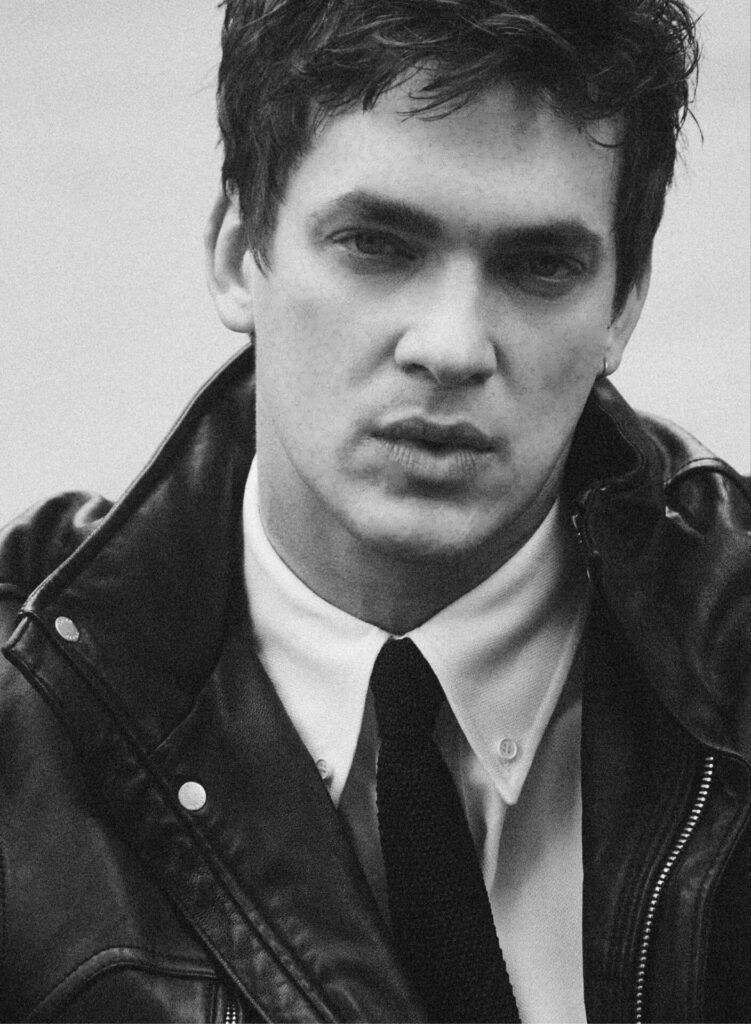
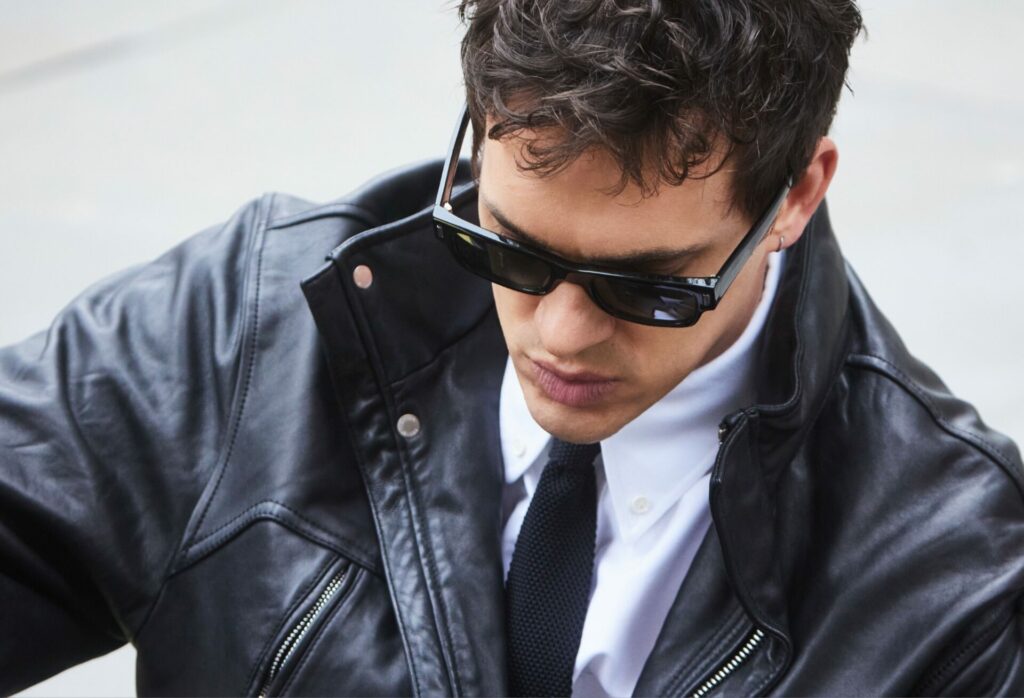
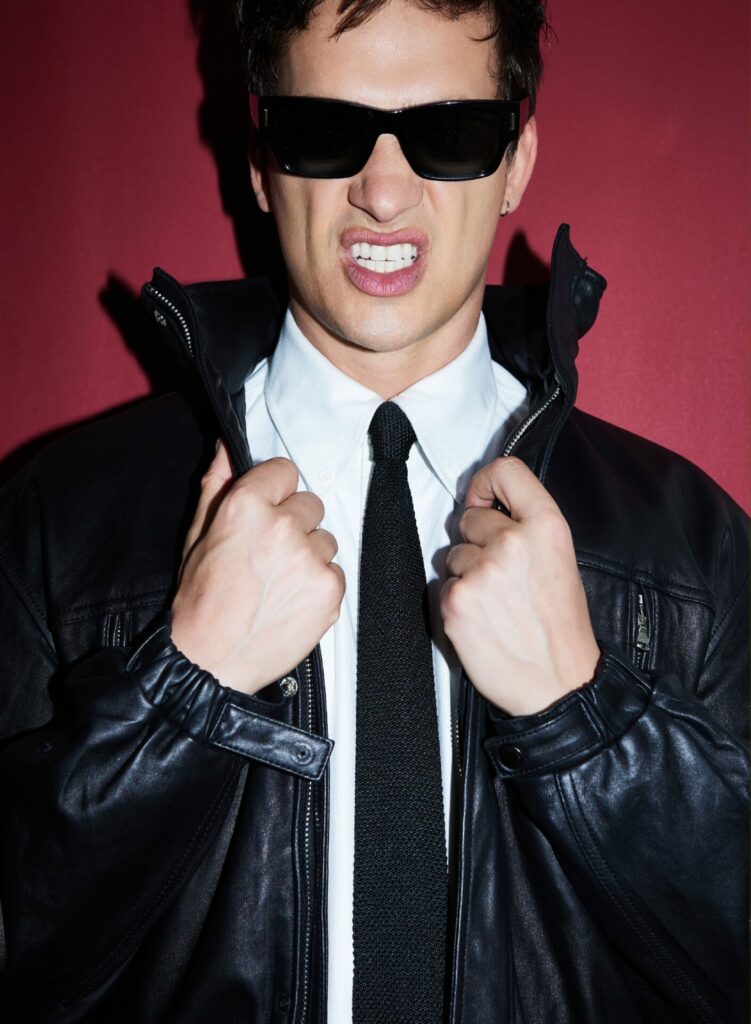
Looking back though, Luke can see hope far he’s grown. “I’m more confident in who I am and what I can do. I feel like the variety I’ve had has been lovely. I’ve worked on comedies, drama, and fantasy. That for me is the most appealing part, finding roles that are giving variety. If anything, I say to my agent, what else can I do? What have I done? What can I do next?”
Big Mood is streaming on Channel 4 now.
